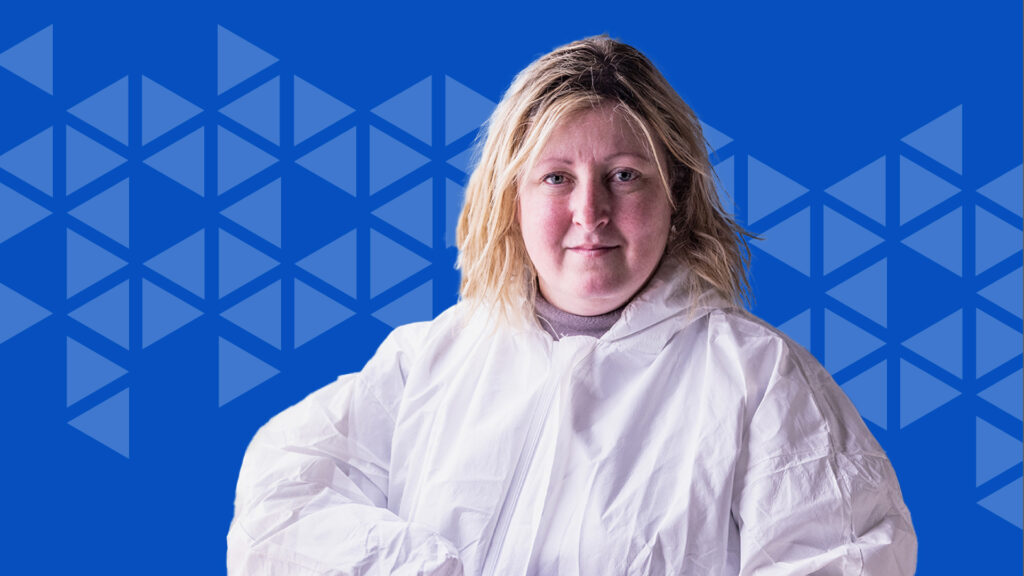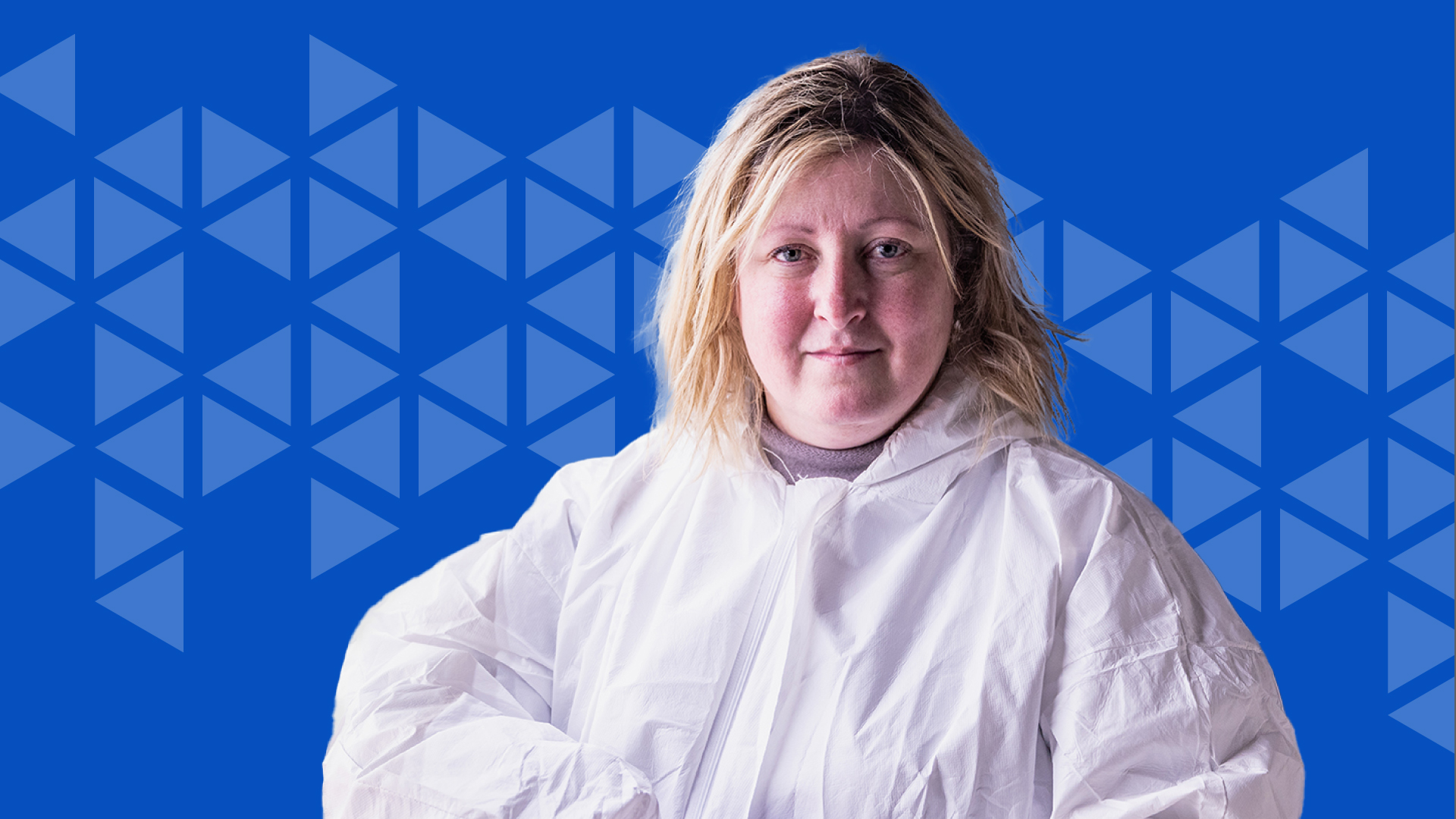
Three years on from the start of the pandemic, SRI International continues in its commitment to COVID-19 research.
Since the start of the pandemic in 2020, COVID-19 research has been an integral part of SRI’s mission in making a safer, healthier, and more sustainable future. We spoke with Mary Lanier, PhD, SRI Biosciences Division’s Director of Immunology and Virology, to learn more about her ongoing research that supports this mission. Here are excerpts of the conversation:
Tell us about your work as Immunology and Virology Director at SRI and how you have contributed to the fight against COVID in this role.
My group’s work is focused on developing and standardizing assays for the testing of novel anti-viral and immune therapeutic compounds to combat COVID-19. As a contract research organization (CRO), SRI has tested hundreds of repurposed drugs, new drug formulations, and novel small molecules to prevent infection and immune therapies to target viruses directly or target immune function. The overarching goal of this work is to develop effective prevention and treatment options for individuals against COVID-19, which will ultimately protect the health of all and potentially save lives.
What have been the biggest challenges your group has faced while conducting COVID research?
Since the virus that causes COVID-19 was new, it was challenging yet important to develop realistic and biologically relevant models to assess the performance of potential therapeutics. Additionally, the lethality of the new virus imposed strict requirements to work with it, resulting in a high biosafety level assignment of 3 (BSL-3). SRI is one of the few institutes that has both the facilities and expertise to work with BSL-3 pathogens. Within weeks of COVID-19 emerging as a worldwide threat, SRI rapidly mobilized resources and begin to experiment with the virus, vaccines, and antiviral treatments.
How do you see this work impacting the way we approach similar future health challenges?
We’ve made strides in best practices for developing assays to measure the efficacy of early-stage treatments for a new pathogen, and there is still a need to understand how these assays may translate to infectious modeling and eventually human therapy. We’re currently comparing multiple approaches to measure anti-viral compound efficacy in order to optimize interpretation and selection of promising anti-viral compounds to bring to the next stage of testing. Optimizing this part of the pipeline will support faster development of effective prevention or treatment options, which will be critical to protecting people in the event of another viral outbreak.
Outside of COVID research, how does the Immunology and Virology group at SRI contribute to a safer and healthier future?
Currently, the immunology and virology group at SRI is also focused on projects involving the development of novel adjuvants for vaccines. Adjuvants are ingredients that can be added to a vaccine to create a stronger immune response in people receiving it, thus providing them with higher levels of immunity against a virus. Additionally, we are working on developing therapies for severe food allergies. About 20 million people have food allergies in the United States, 4 million of which are children. The prevalence of food allergy has increased in children in the U.S. over the past 20 years, so developing therapies to prevent negative outcomes is especially relevant now.



